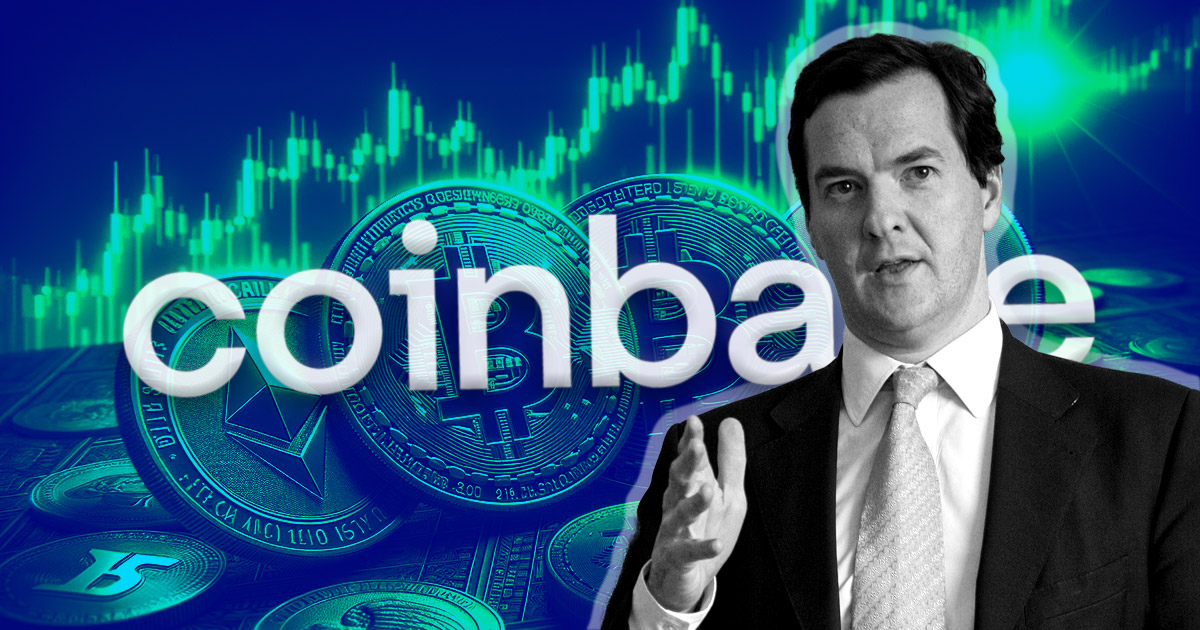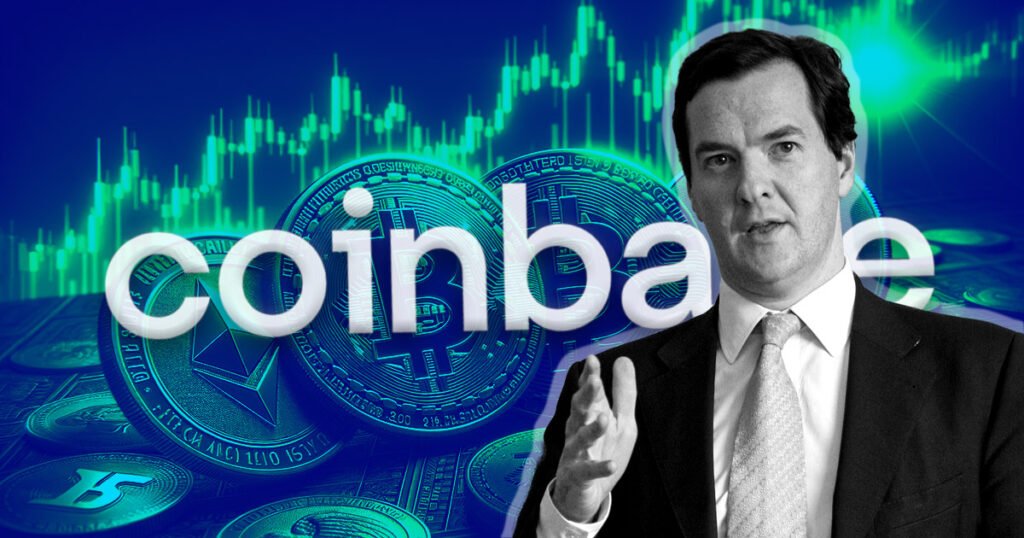
To bolster its global expansion efforts, Coinbase has hired George Osborne, a well-known figure in British politics and finance. Osborne is best known for his service as Chancellor of the Exchequer (Treasury) from 2010 to 2016 and his contribution to the country’s economic and financial policy, alongside former U.S. Secretary of Defense Dr. Mark T. Esper and former Senator Patrick ·Toomey on the council together.
Osborne has historically taken a positive stance on cryptocurrencies and blockchain technology. He has made numerous statements over the years demonstrating his belief in their transformative potential.
According to Coinbase reports, the company has made significant progress in its global expansion. It has obtained operating licenses in several countries including France, Spain, Singapore and Bermuda. Coinbase has expanded its operations to 20 African countries, facilitating the deposit and withdrawal of USDC by millions of users and enabling faster, more cost-effective transactions. Osborne’s extensive experience in government, international finance and fintech investments is expected to be invaluable during this phase of growth.
Faryar Shirzad, Coinbase’s chief policy officer, emphasized Osborne’s diverse business, journalism and government expertise as key to the company’s future growth. “George brings a wealth of experience… We look forward to relying on his insights and experience to drive Coinbase’s growth around the world,” Shirzad said.
Commenting on his appointment, Osborne said:
“There are a lot of exciting innovations happening in finance right now. Blockchain is transforming financial markets and online transactions. Coinbase is at the forefront of these developments.
I look forward to working with the team there to build the new future of financial services. “
George Osborne and cryptocurrency.
In 2014, Osborne announced that the British government would explore the role of virtual currencies such as Bitcoin and how they could help the UK become a leader in the digital economy. By 2015, Osborne expressed his confidence in the potential of digital currencies and said they could play an important role in the financial sector. He emphasized his hope that London will become a world leader in financial technology and digital currency.
In addition, Osborne’s venture capital firm 9Yards Capital has also invested in cryptocurrency. The company has reportedly made significant gains after investing in Internet Computing (ICP).
Osborne is an interesting choice given Coinbase’s recent activity to “rebuild” its system. In 2008, Osborne warned that the UK’s fiat currency system could collapse,
“If the government is not careful we are in danger of a collapse of the pound, a run on the pound…
The more you borrow as a government, the more debt you have to sell and the less attractive your currency becomes. “
When Osborne made this comment, the UK national debt stood at £530 billion; by the time he left office, this figure had grown to £1.6 trillion. It is estimated to be approximately £2.7 trillion, approximately 102% of today’s GDP.
This first-hand experience of the national debt spiral may give Osborne a unique perspective on the benefits of digital currencies like Bitcoin. Between 2010 and 2016, he printed around 500 billion pounds and increased the UK’s M1 money supply while he was chancellor.
The UK has failed to achieve Osborne’s 2015 vision of becoming a digital assets hub. Navigating the growing regulatory hurdles and restrictions on cryptocurrency trading in the country may be one of the most significant challenges Osborne faces in advising Coinbase going forward.

